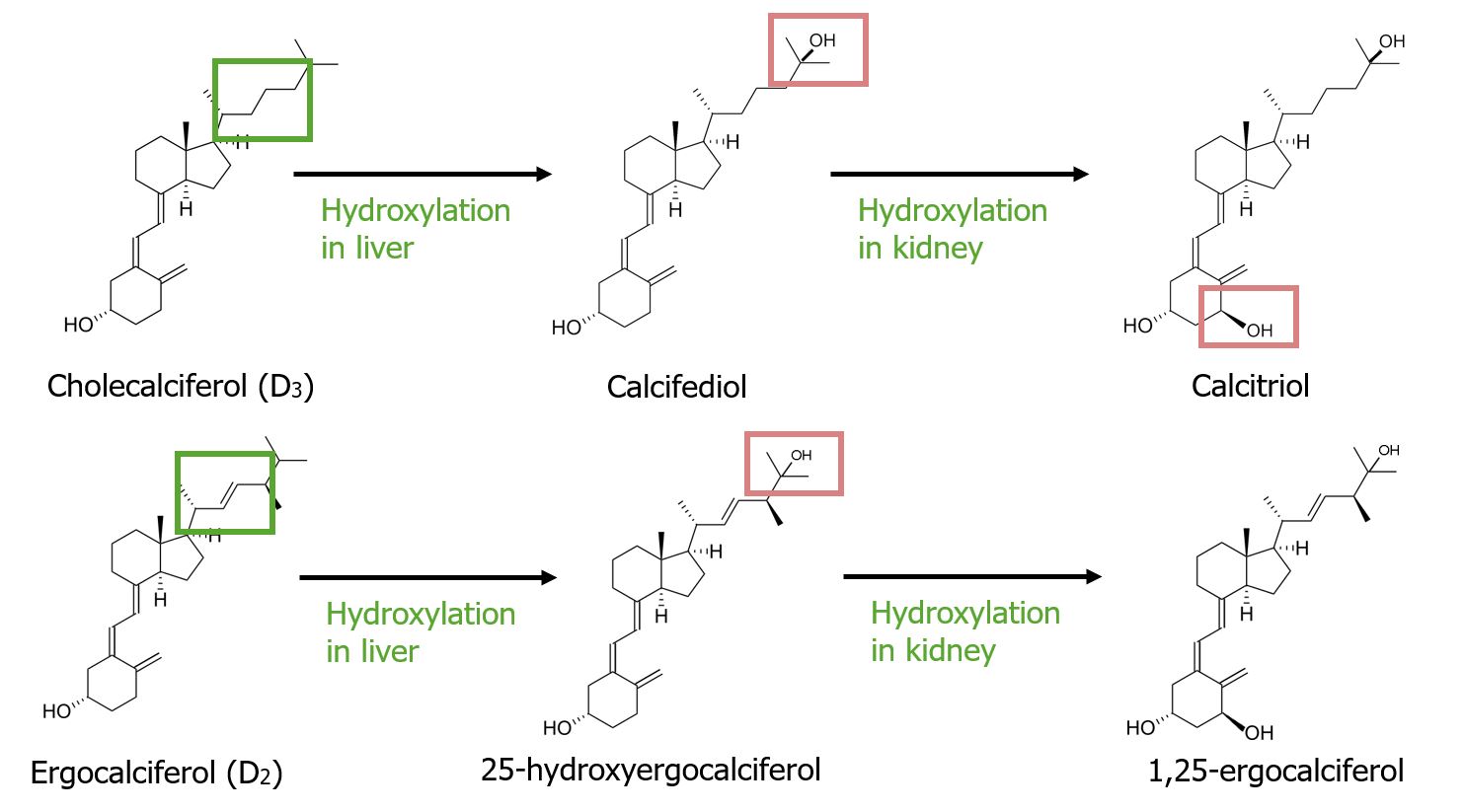Playlist
Show Playlist
Hide Playlist
Vitamin A (Retinol, Retinoic Acid, Retinal)
-
Slides FatSolubleVitamin Nutrition.pdf
-
Download Lecture Overview
00:00 In this lecture I'll cover everything that you need to know for your exams about fat soluble vitamins. 00:09 Go ahead pull up the visual. 00:12 How do we remember, what the fat soluble vitamins are? Well I hope you remembering the big fat naked lady on the beach. 00:21 Because we have a little "n" then we start with "A." So A is retinol or retinoic acid or retinal. 00:31 In the fat soluble vitamins, again we generally go with the latter. 00:36 But I'm giving you the names so you have some associations. 00:39 But depending on it's form, it could have a different name so it can get a little confusing. 00:44 So I really recommend keeping track of the latter name for these vitamins. 00:49 Retinol is involved in the retina and rhodopsin. 00:58 So it's involved in the pigment of rhodopsin. 00:59 And thus, associated with night vision. 01:03 We also know that vitamin A is involved in skin issues. 01:07 Treatment with retina or retinoic acid. 01:12 It is common for acne and the renewal of the skin. 01:16 And it's also involved in cell differentiation. 01:20 So in cell differentiation, I have an example here where vitamin A can be used as a treatment for acute myeloid leukemia. 01:29 What happens in that case is, we end up with a number of progenitor cells or over abundance of progenitor cells that are not maturing. 01:39 And this has to do with a retinol receptor. 01:42 And the retinol receptor is defective. 01:45 So there is some thought that treatment with additional vitamin A can increase the production of these erythrocytes and mast cells and so on and so forth. 01:55 Maturation of the red blood cell, I mean, white blood cell line. 01:59 So next we'll look at vitamin A deficiency. 02:03 Clearly you can guess what those deficiencies result in based on the role of vitamin A. 02:10 So Nyctalopia or poor night vision, poor skin health and cell differentiation issues in bone. 02:20 And skin and any other cell well there is differentiation. 02:24 Particularly in the blood also. 02:27 So things to keep in mind about vitamin A. 02:31 And with that we shall move on to the toxicity of vitamin A. 02:36 There are fairly non specific symptoms for deficiency. 02:43 So nausea, irritability, headaches, some visual problems, maybe skin or hair issues. 02:48 And it's certainly something to consider with the toxicity, is it is teratogenic to fetuses. 02:57 So we certainly don't want to be using any of the retinol promoting drugs. 03:07 Like you would use accutane for acne or something during pregnancies. 03:12 So that's one thing to consider with toxicity. 03:15 Again we are in the fat soluble vitamins. 03:17 So these can accumulate toxicity much more easily than deficiency.
About the Lecture
The lecture Vitamin A (Retinol, Retinoic Acid, Retinal) by Georgina Cornwall, PhD is from the course Nutrition. It contains the following chapters:
- Fat Soluble Vitamins
- Vitamin A - Deficiency
Included Quiz Questions
A patient presents with fever, bone pain, and lethargy. He also suffers from frequent infections and bleeding from the gums and nose. Blast cells were found on bone marrow biopsy. Which of the following vitamins will be helpful in the treatment of his disease?
- A
- D
- E
- K
- C
A female trying to conceive comes to you with acne problems. You will avoid giving her which vitamin for acne treatment due to its teratogenic effects on the fetus?
- A
- D
- E
- K
- C
Which of the following is a common symptom of vitamin A deficiency?
- Nyctalopia
- Exophthalmos
- Orange-colored skin
- Dementia
- Joint pain
Customer reviews
5,0 of 5 stars
| 5 Stars |
|
5 |
| 4 Stars |
|
0 |
| 3 Stars |
|
0 |
| 2 Stars |
|
0 |
| 1 Star |
|
0 |




